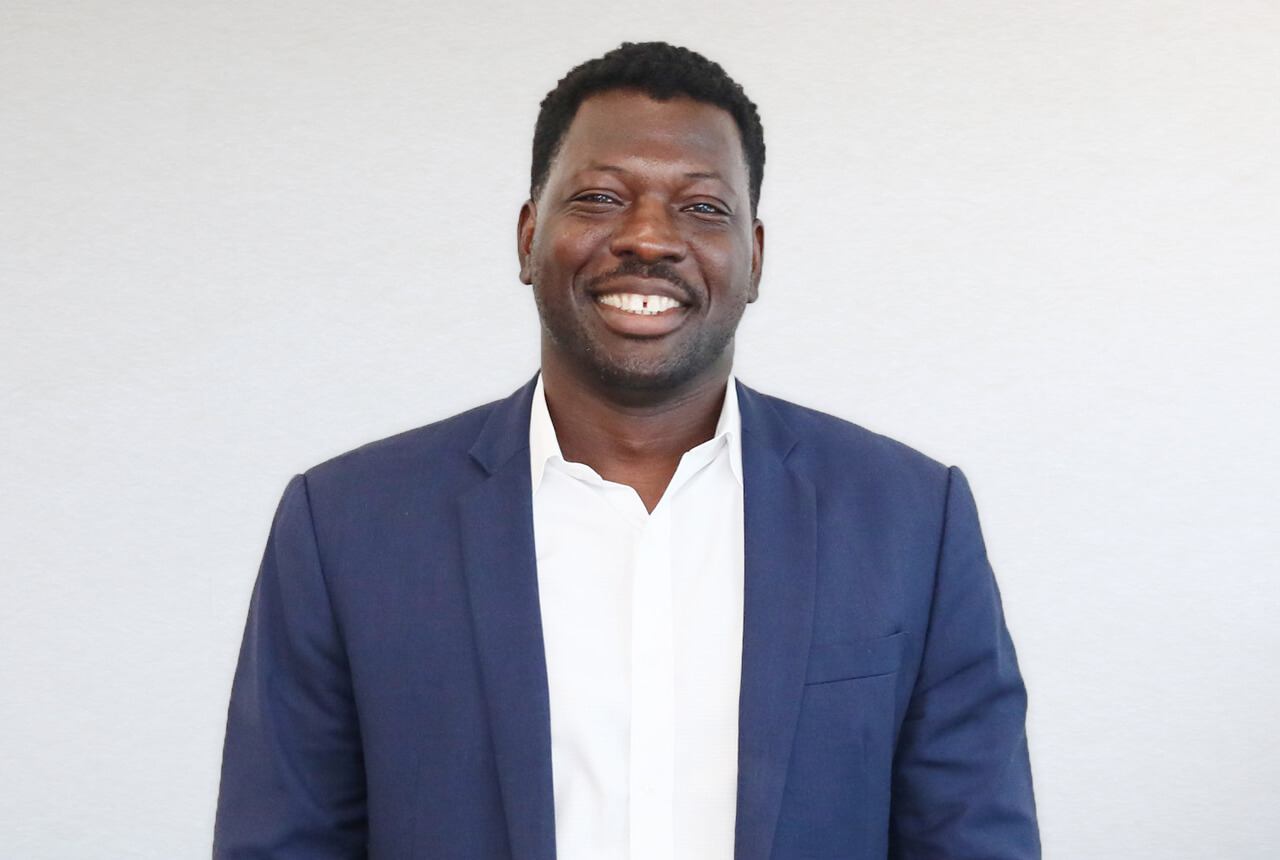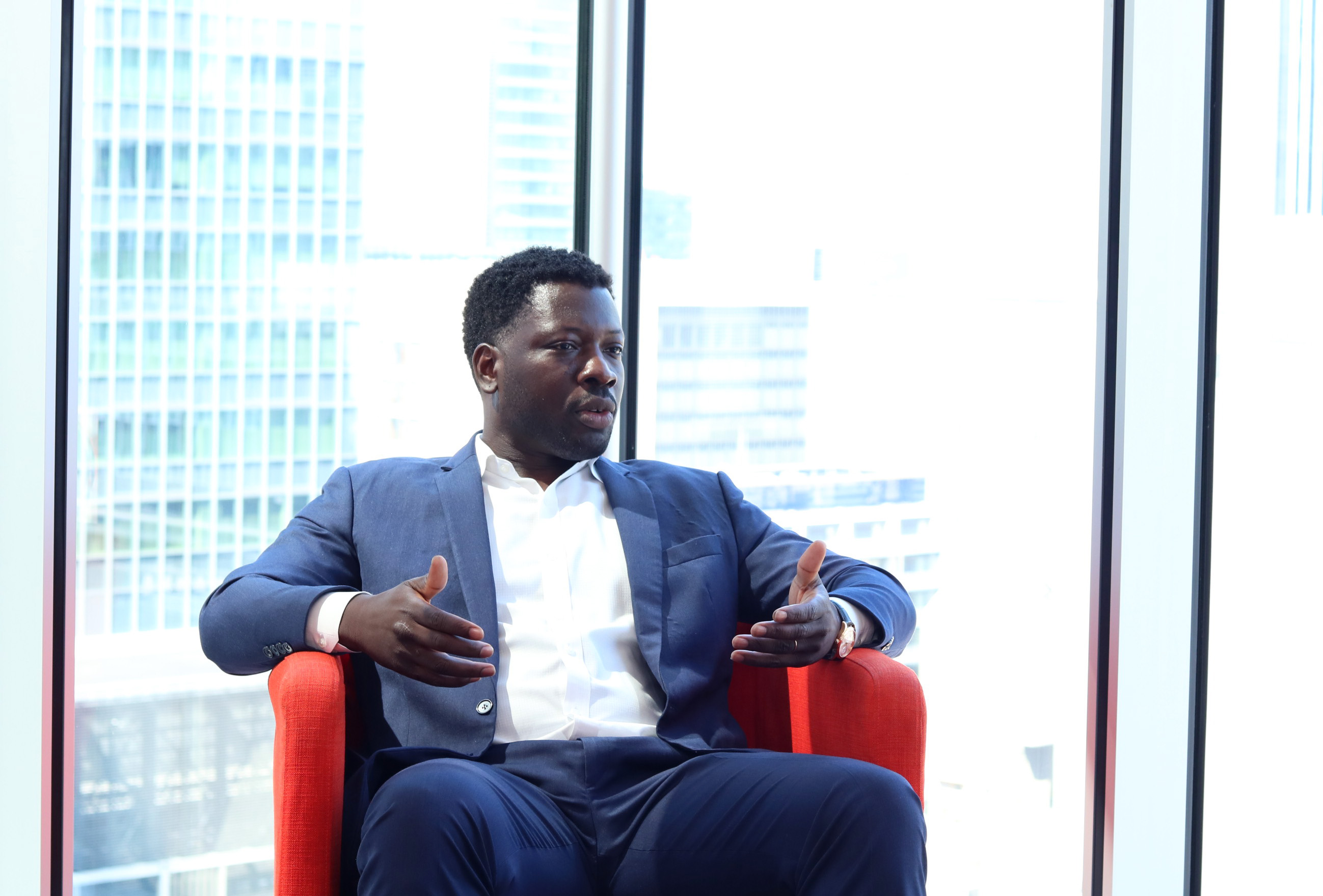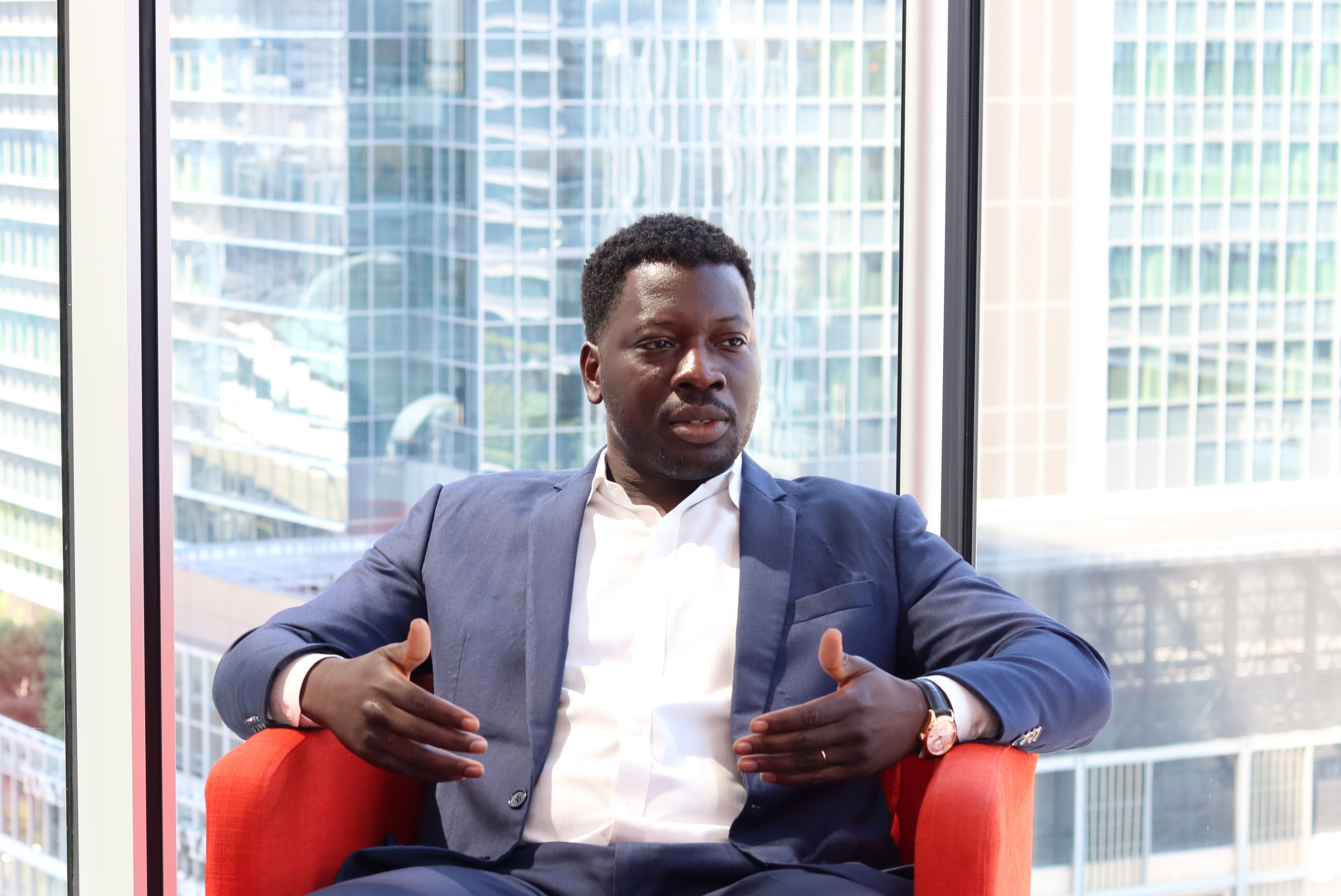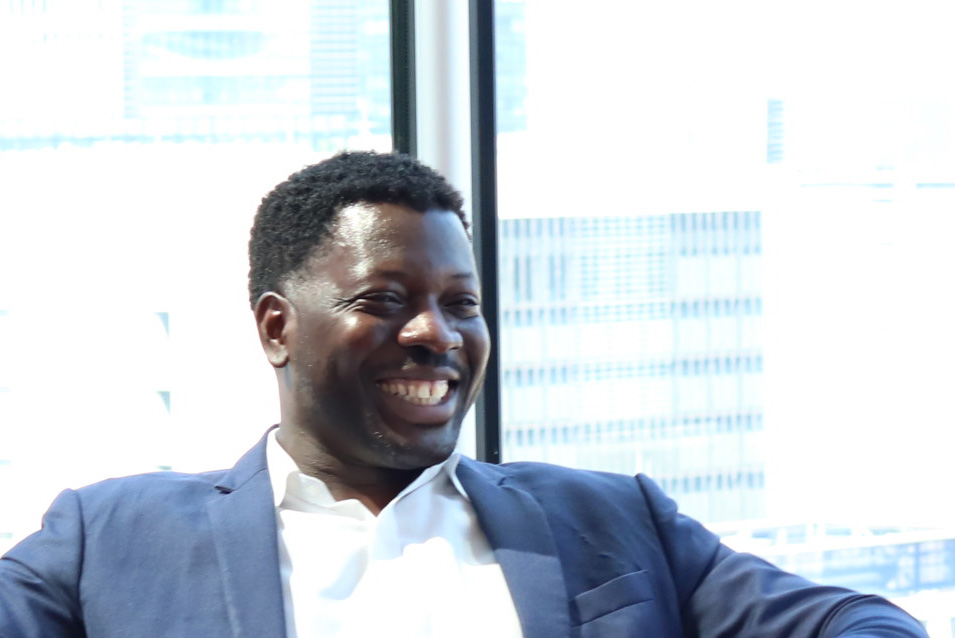Empower Your Work: Discover Purpose and Passion through Your Ikigai
- Japan's No1 job site for multilinguals 「Daijob.com」
- Cornerstone Recruitment Japan Recruiting Calling all global talents who aspire to thrive in a world-leading companies!
- INTERVIEW 4 Empower Your Work: Discover Purpose and Passion through Your Ikigai


Cornerstone Recruitment Japan Associate Director Life Science
Raised in Paris, France, by parents with roots from Côte d'Ivoire, Cheik grew up in a rich bicultural environment that shaped his worldview from an early age. After graduating from a university in New York, he began his career in the financial industry. About 14 years ago, after moving to Japan, he transitioned into the human resources field—a change that felt both natural and logical. His passion for people and businesses has made recruitment a perfect fit for him.

—Tell us about your life before moving to Japan. As a child, I had the opportunity to travel extensively across Europe, Africa, Asia, and America, which allowed me to interact with people from diverse backgrounds and develop an open-minded worldview from a young age. To date, I've visited over 30 countries. Before moving to Japan, I spent about a decade in New York. I earned my bachelor's degree in science from the State University of New York at Buffalo and had the privilege of starting my career in New York City, the city that never sleeps. During my final year at university, I met my wife, who is from Japan. After spending a few years in NYC, we decided to relocate to Japan.
—Can you share your career journey? My career began in the financial industry. After relocating to Japan, I continued working in finance but felt eager to explore new opportunities. Upon a friend's suggestion, I decided to explore the human resources industry. I quickly realized it was a great fit for me because of my entrepreneurial mindset and passion for engaging with people. I also have a broad interest in business. Although I initially planned to work in HR for just a year or two, I have now been in the field for over 14 years. I found my role really rewarding. I spend my days immersing myself in my clients' businesses, understanding their visions, products, services, goals, cultures, and work environments to find the best candidates for them.
—What led you to join Cornerstone? I previously worked with Alex, the Co-founder of Cornerstone, at a leading recruiting firm, where we were part of one of the top teams in Asia. Before joining Cornerstone, I explored opportunities with major recruitment agencies in Japan. However, I chose Cornerstone because of its outstanding vision and exceptional recruitment methodology. The company's commitment to high-quality service delivery and its strong alignment with my own business ethos and values made it the perfect choice for me.

— As the Associate Director of the Life Sciences Division, can you describe the unique aspects of the hiring process in this field?
We cater to all sectors within the life sciences industry, including pharmaceuticals, medical devices, and biotechnology. While we have job openings across Japan, 90% of them are in major cities like Tokyo, Osaka, Yokohama, and Fukuoka. A distinct feature of the life sciences field is the long-term nature of projects, often spanning for years. When transitioning to a new job, it's crucial to showcase your extensive specialized knowledge, well-educated background, high skill level, and passion for your specific field.
Our life sciences team consists of seasoned recruiters and professionals with experience in the same sector. For me, life sciences is almost a family business. My mother is a pharmacist, and my sister is a biotechnology engineer, so my mother remarked, "Finally! (You’re in the life sciences field)."
Life sciences focus on improving people's lives, maintaining health, and advancing medical treatments. By connecting outstanding candidates with companies, we may facilitate potential breakthroughs and contribute to significant advancements in disease treatment, potentially impacting countless lives. A single action can profoundly influence the future.
This work resonates with the Japanese concept of "ikigai" (a sense of purpose), as it aligns with our passion for making a difference. Many job seekers likely share this sentiment. Our deep understanding of client needs allows us to effectively support their careers, helping them find their own "ikigai."
—Could you share one of your most memorable success stories in recruiting?
One of my favorite success stories involves assisting a job seeker who remained at the same company for 25 years without a job change. At over 50 years old, it was his first attempt at a new challenge. He applied to three out of the six companies we introduced and received offers from two. However, he unexpectedly became fearful of the change and couldn't decide. He had numerous questions for the offering companies, and I had to explain to the clients that it was his first job change, helping to balance and advance the process. Ultimately, I also spoke with his wife to ensure it was a good decision for the whole family. Job changes affect not just the individual but their families as well. This experience highlighted the critical importance of every relationship involved.
Many people are unaware of their capabilities or whether there is a market for them. We don't just introduce jobs; we reveal the potential of job seekers. Understanding one's market value is very challenging. We support job seekers by providing client information and consistently answering their questions, ensuring we also support their loved ones.

—You have worked with many leading companies. What are the characteristics of successful companies?
I believe the most crucial factor is the company culture. When employees are drawn to the corporate culture, they work passionately and remain with the company for the long term. Every major global company has its own unique culture, which defines its corporate identity. For employees to excel, they need to find their work meaningful and feel that everyone is working towards the same goals and outcomes.
Another key point is leadership. There needs to be someone in the company whom employees admire and want to emulate, help, or follow. They don't need to be charismatic, but they must have the strength to unite every employee as a single team. Finally, having excellent products or services is essential. The company’s offerings must be compelling to both employees and customers. Without a strong interest in the products from both parties, the business will struggle to succeed.
I believe that without any one of these three elements, achieving significant business success is challenging. In Japan, the phrase "ganbarimasu" (I will do my best) is commonly used, but without these three elements, it is hard for employees to maintain their efforts over the long term. Companies that invest in building a strong corporate culture are likely to continue growing. Please consider this perspective when choosing a company.
—What do you keep in mind when working in the human resources industry?
As an Associate Director, my role is to build a high-performing team that is prepared for both present and future challenges. This involves forward-thinking and anticipating how the workplace will evolve over the next 2 to 3 years. What changes or trends should we expect? How can we continue delivering quality services to our clients and candidates in this new landscape?
Throughout my 14 years in the human resources industry, I've witnessed significant shifts. The integration of online Professional Networks, the rise of remote work, and the emergence of new technology trends have all profoundly impacted the recruitment process.
Recent advancements in AI have transformed the workplace. While AI significantly enhances operational efficiency, our clients appreciate our guidance that goes beyond technical insights. I see technology as the "science" of recruitment, while communication embodies the "art." Despite these technological shifts, the essence of our work remains the same: building strong relationships and offering educated, personalized advice to our clients. Engaging with clients and candidates continues to be of utmost importance.

—Can you share the secrets for global talents to achieve career success?
Based on my experience, there are three key secrets to a successful career. The first is "saying 'Yes' to opportunities." This advice came from a former manager when I asked about her career progression. When you're given new responsibilities at work, even if you're unsure how to handle them, say "Yes" first. Seek help from those around you, step out of your comfort zone, and embrace new challenges. Saying "Yes" can open doors to career paths you might never have imagined.
The second secret is "becoming an expert." This is particularly crucial in the life sciences sector. With the increasing use of generative AI like "ChatGTP," having only general knowledge isn't enough to stand out. You need to become an expert in a specific field, knowing it more deeply than anyone else. The third secret is "building a network." In your career, you'll need to connect with many people both inside and outside your organization. Even if you perform well at work, opportunities won't come if no one knows about you. Being a noticeable presence in and out of the company is essential. Getting accustomed to occasionally uncomfortable situations can pave the way for new career opportunities.
—Lastly, what message do you have for those considering a career change? My goal is to help job seekers find fulfilling work that gives them a sense of "ikigai" (purpose of life). By securing a new job, I hope job seekers can achieve higher incomes, spend more time with their families, and lead happier lives. Our company is constantly evolving and improving our recruitment strategies, so if you're looking to enhance your current job or lifestyle, please reach out to Cornerstone for assistance.
-
INTERVIEW 1
-
INTERVIEW 2
-
INTERVIEW 3
-
INTERVIEW 4
RECRUIT

